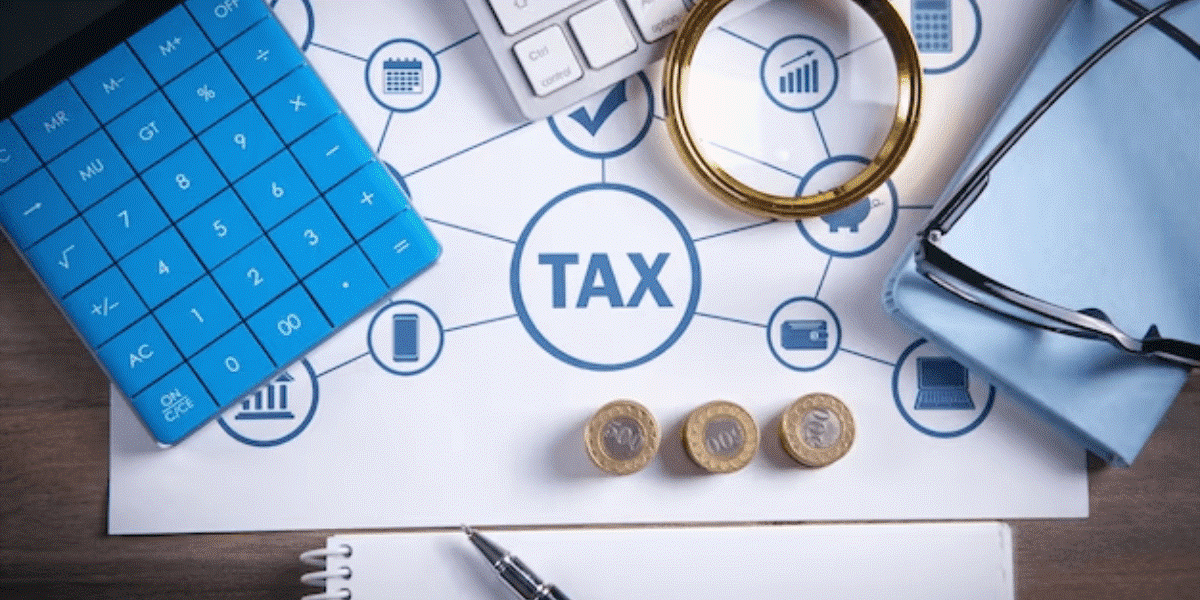Going Through The Maze Of Late Tax Lodgement: Avoid Penalties, Find Solutions
Late tax lodgement can be daunting, but don't worry! We demystify the complexities of penalties and offer effective strategies to tackle overdue returns. With Tax App, discover how to minimise charges, understand ATO penalties, and stay on track for future compliance, turning a stressful situation into a manageable task.
Consequences Of Late Tax Lodgement
If you lodge your tax return late, it can result in significant penalties from the Australian Taxation Office (ATO). These penalties are calculated based on the duration of the delay and can accrue rapidly, emphasising the need for prompt action and awareness of one's tax obligations.
Comprehensive Guide To Managing Late Lodgements
Understanding the intricacies of late tax lodgements can be challenging, but with the right knowledge and tools, you can effectively handle this situation. The Australian Taxation Office (ATO) enforces a penalty for late tax return lodgement in Australia, calculated in 'penalty units'. Each unit has a specific monetary value, and for every 28 days your return is overdue, you accrue one penalty unit, subject to a maximum limit. This system ensures that penalties are proportionate to the period of delay, emphasising the importance of addressing late lodgements promptly.
As of now, the value of a single penalty unit is $313, but this is subject to change, reflecting inflation and other economic factors. The cap on these penalties is set to prevent excessive charges but can still accumulate to a significant amount if the delay is extensive. The maximum penalty is typically five units, equating to $1,565, but this can vary based on individual circumstances and the taxpayer's history with the ATO.
Several factors influence the severity of these penalties. The ATO considers the taxpayer's compliance history, the reasons for the delay, and any efforts made to rectify the situation. For instance, individuals with a history of timely lodgements may face more lenient penalties compared to those with recurrent delays. Similarly, unforeseen circumstances such as natural disasters or serious personal issues are often considered when assessing penalties.
Common reasons for late lodgements include misunderstanding tax obligations, complex financial situations, or simply overlooking the deadline. Misunderstanding can arise from changes in tax laws or personal circumstances, like new sources of income or investments. On the other hand, complex financial situations, such as operating a business or multiple income streams, can make tax compliance more challenging, leading to delays.
The ATO's response to late lodgements can vary. In some cases, they may issue reminders or warnings before imposing penalties. In others, particularly where there's a history of non-compliance, they might proceed directly to penalisation. However, the ATO also acknowledges that each case is unique and is open to discussions and arrangements to facilitate compliance, especially in cases of genuine difficulty or confusion.
Understanding these nuances is key to managing late lodgements effectively. It's not just about facing penalties; it’s about comprehending your tax obligations and the repercussions of not meeting them on time. Through this guide, we aim to equip you with the knowledge to navigate late lodgements and the confidence to tackle any tax challenges that come your way.
-
Identifying Common Reasons for Late Lodgement
Late lodgements stem from a variety of causes, from forgetting the deadline to facing intricate financial situations. Understanding these triggers is crucial for proactive tax management. Common causes include misinterpretation of tax rules, personal or business financial complexity, and life events that disrupt regular tax filing routines.
-
Calculating Penalties: How Much Could You Owe?
The ATO calculates late lodgement penalties based on the time elapsed since the due date. Each 28-day period attracts a fixed penalty unit, capped at a maximum. This systematic approach helps taxpayers gauge potential fees, underscoring the financial impact of delayed tax filings and the importance of timely lodgement.
-
Mitigating Circumstances: Can Penalties Be Reduced?
In assessing penalties for late lodgement, the ATO takes into account mitigating circumstances, such as natural disasters, serious health issues, or other major life disruptions. These factors could lead to a reduction or waiver of penalties, providing some relief for affected taxpayers under challenging circumstances.
-
The Role of Voluntary Disclosure in Penalty Reduction
Proactively disclosing a late lodgement to the ATO can significantly reduce penalties, especially if done before any audit or compliance activities commence. This approach demonstrates responsibility and transparency, often resulting in more lenient treatment from the tax authority.
-
Strategies to Avoid Future Late Lodgements
To prevent future late lodgements, it's essential to plan ahead and fully understand your tax obligations. Implementing strategies like setting up calendar reminders, maintaining organised tax records, and staying informed about tax deadlines can greatly reduce the risk of missing future lodgement dates.
-
How Tax App Can Help
Tax App streamlines tax management, offering tools for efficient and timely tax lodgement. Features include deadline reminders, organised document storage, and direct communication channels with the ATO. These tools not only facilitate compliance but also reduce the likelihood of incurring late lodgement penalties.
Expert Guidance For Late Tax Returns: How Our Professional Help Can Ease The Process
Dealing with late tax return lodgements can be a daunting task, especially when complexities arise. Professional assistance plays a pivotal role in navigating these choppy waters, offering clarity and strategic solutions. This section explores the manifold benefits of seeking expert tax advice and how it can transform a stressful situation into a manageable one.
Firstly, professional tax advisors possess a deep understanding of tax laws and regulations. Their expertise is invaluable in deciphering complex tax scenarios that may seem insurmountable to the average person. They are adept at interpreting intricate details of tax legislation, ensuring that you don't miss out on any nuances that could be crucial in your specific case.
Another significant advantage is their ability to negotiate with the ATO on your behalf. Dealing directly with tax authorities can be intimidating for many. Tax professionals, with their experience and knowledge, can effectively communicate and negotiate with the ATO. They can help in presenting your case, explaining the reasons for late lodgement, and even arguing for reduced penalties or more favourable payment terms. This negotiation aspect is particularly crucial when dealing with significant penalties or complex tax issues.
Ensuring compliance is yet another key benefit. Tax professionals can guide you through the process of rectifying your late lodgement, ensuring that all necessary steps are taken to comply with the laws. This not only includes filing overdue returns but also addressing any ancillary issues such as unpaid taxes or incomplete records.
Tax App integrates this professional assistance seamlessly, providing a holistic solution for managing your tax affairs. The app's features are designed to work in tandem with expert advice, ensuring that you have all the tools and resources at your disposal to lodge tax returns online. It offers direct access to professional guidance, simplifying the process of dealing with late lodgements. This integration means you can manage your tax affairs more efficiently, with expert advice just a few taps away.
If you lodge tax online with professional assistance, it reduces the stress and potential financial impact of this situation. The combination of expert knowledge, negotiation skills, and compliance assurance, together with Tax App, one of the leading
accounting firms in Australia, get a comprehensive solution to lodge your tax return effectively and efficiently.

At Tax App, we offer Sydney Local, Online Accounting and Tax Services for individuals and small businesses in our community. Our technology and experienced team provide efficient and personalised solutions to streamline financial management. Trust us to be your partner in success.
Chartered Accountants
Liability limited by a scheme approved under Professional Standards Legislation
All Rights Reserved | Tax App Pty Ltd
Useful Links
Contact Us
Disclaimer: The content of this website is intended to be of a general nature and should not be construed as tax or any other form of advice. We do not guarantee the accuracy or completeness of the information provided in this website. It is imperative that you consult with a qualified professional, such as a certified accountant at Tax App, before taking any action based on the advice or information contained herein. Your specific financial and tax situation may require personalised guidance, and a professional consultation is recommended to ensure compliance with applicable laws and regulations.






